I'm creating a people reducer...
However, we know that requests may very well fail and that is why I inserted in getInitialState() some properties such as data, error and loading.
The data is an object of type People to be able to enter the values of the specific person.
The error is an object of type RequestError if an error occurs in the request.
Finally, loading is the loading of requests.
The error that occurs is that it says that the RequestError interface is not signed in the People interface, which is obvious, because I am using the state as a base.
How do I do this implementation?
ERROR:
var error: RequestError
Argument of type 'RequestError' is not assignable to parameter of type 'People'.
Type 'RequestError' is missing the following properties from type 'People': id, isMain, avatar, messagests(2345)
ACTIONS:
import { createAction, props } from '@ngrx/store';
import { RequestError } from '@shared/interfaces/request.interface';
import { People } from '@shared/interfaces/people.interface';
export const GET = createAction('[GET: USER/API] Get a people');
export const CREATE = createAction('[POST: USER/API] Create a new people', props<{ data: People }>());
export const CREATE_SUCCESS = createAction('[POST: USER/API] Successfully created person', props<{ data: People }>());
export const CREATE_FAIL = createAction('[POST: USER/API] Failed to create a new person', props<{ error: RequestError }>());
export const UPDATE = createAction('[PUT: USER/API] Update a people', props<{ id: string; changes: Partial<People> }>());
export const UPDATE_SUCCESS = createAction('[PUT: USER/API] Person updated with success', props<{ id: string; changes: Partial<People> }>());
export const UPDATE_FAIL = createAction('[PUT: USER/API] Person update failed', props<{ error: RequestError }>());
REDUCER:
import { EntityState, EntityAdapter, createEntityAdapter } from '@ngrx/entity';
import { Action, createReducer, on } from '@ngrx/store';
import { People } from '@shared/interfaces/people.interface';
import * as fromPeopleAction from './people.actions';
export interface State extends EntityState<People> {}
export const adapter: EntityAdapter<People> = createEntityAdapter<People>({
selectId: (people: People) => people.id,
});
const INIT_STATE: State = adapter.getInitialState({
data: null,
error: null,
loading: false,
});
const peopleReducer = createReducer(
INIT_STATE,
on(fromPeopleAction.CREATE, (state: State, { data }) => adapter.addOne(data, { ...state, loading: true })),
on(fromPeopleAction.CREATE_SUCCESS, (state: State, { data }) => adapter.addOne(data, { ...state, loading: false })),
on(fromPeopleAction.CREATE_FAIL, (state: State, { error }) => adapter.addOne(error, { ...state, loading: false }))
);
export function reducer(state: State | undefined, action: Action) {
return peopleReducer(state, action);
}
